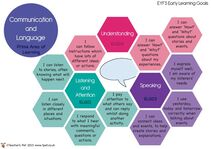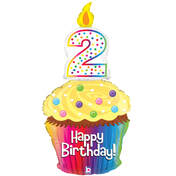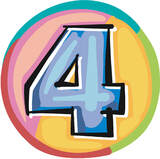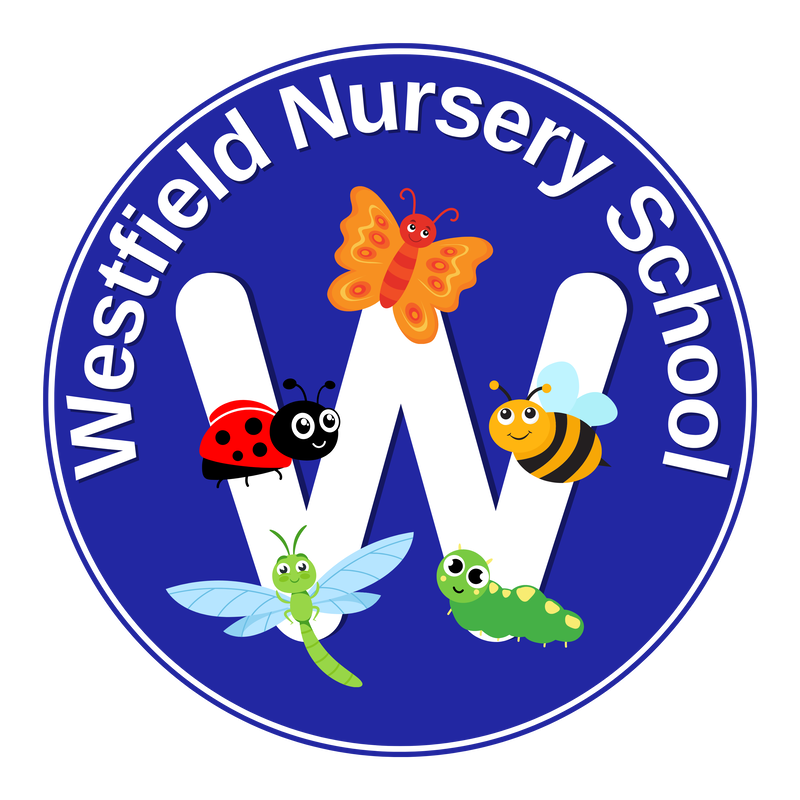
Westfield Nursery School
Westfield Road Dunstable Bedfordshire LU6 1DL Tel: 01582 608650 Email: [email protected] Head Teacher - Mrs Elizabeth Collins |
COMMUNICATION AND LANGUAGE

The development of children’s spoken language underpins all the other areas of learning and development. Children’s back-and-forth interactions from an early age form the foundations for language and cognitive development. The number and quality of the conversations they have throughout the day in a language-rich environment is crucial. Reading frequently to children, and engaging them actively in stories, non-fiction, rhymes and poems, and then providing them with extensive opportunities to use and embed new words in a range of contexts, will give children the opportunity to thrive. Through conversation, story-telling and role play, where children share their ideas with support and modelling from their teacher, and sensitive questioning that invites them to elaborate, children become comfortable using a rich range of vocabulary and language structures.
| Communication and Language Policy | |
| File Size: | 111 kb |
| File Type: | |
CHILDREN TALKING + HOW TO HELP

By two years children should be able to...
-Use up to 50 or more single words e.g. ‘no’, ‘book’, ‘biscuit’
-Be starting to put short sentences together
-Be starting to ask simple questions
-Understand between 200 and 500 words
What can you do to support?
-Comment on what they are doing .e.g. ‘You are building a tower.’
-Wait for them to speak and respond to what they say.
-Join in their play, following their lead.
-Have a conversation everyday
-Use up to 50 or more single words e.g. ‘no’, ‘book’, ‘biscuit’
-Be starting to put short sentences together
-Be starting to ask simple questions
-Understand between 200 and 500 words
What can you do to support?
-Comment on what they are doing .e.g. ‘You are building a tower.’
-Wait for them to speak and respond to what they say.
-Join in their play, following their lead.
-Have a conversation everyday

By three years children should be able to...
-Use up to 300 words
-Use words to describe what things look like e.g. ‘big’, ‘soft’, where things are e.g. ‘under’, ‘on’ or how many e.g. ‘lots’
-Refer to something that has happened in the past
-Put 4 or 5 words together in a sentence e.g. ‘Me want more juice.’ ‘I want my coat.’
-Understand longer instructions e.g. ‘Put away your lunchbox and hang up your coat.’
What can you do to support?
-They enjoy spending time with other children and adults.
-Keep the talk going by nodding, smiling and encouraging. Make comments e.g. ‘Wow’, ‘really,’
-Share books and talk about the story.
-Add words to their sentence e.g. If they say ‘car, ramp, fast.’ You say ‘The car goes down the ramp fast. Wow!’
-Enjoy a variety of songs and rhymes.
-Use up to 300 words
-Use words to describe what things look like e.g. ‘big’, ‘soft’, where things are e.g. ‘under’, ‘on’ or how many e.g. ‘lots’
-Refer to something that has happened in the past
-Put 4 or 5 words together in a sentence e.g. ‘Me want more juice.’ ‘I want my coat.’
-Understand longer instructions e.g. ‘Put away your lunchbox and hang up your coat.’
What can you do to support?
-They enjoy spending time with other children and adults.
-Keep the talk going by nodding, smiling and encouraging. Make comments e.g. ‘Wow’, ‘really,’
-Share books and talk about the story.
-Add words to their sentence e.g. If they say ‘car, ramp, fast.’ You say ‘The car goes down the ramp fast. Wow!’
-Enjoy a variety of songs and rhymes.

By four years children should be able to...
-Ask and answer lots of questions using what, where and why.
-Use longer sentences and link sentences together e.g. ‘I had pizza for tea and then I played in the garden.’
-Understand and use colour, number and time related words.
-Start to like simple jokes.
What can you do to support?
-Give longer instructions for them to follow.
-Make up a story together. Think of a character- where do they live? What do they do? Are there any mishaps? What happened in the end?
-Think of words that belong to the same category e.g. animals, fruits, football teams, dinosaurs.
-Play around with words and sounds, e.g. think of words which start with the same sound.
-Ask and answer lots of questions using what, where and why.
-Use longer sentences and link sentences together e.g. ‘I had pizza for tea and then I played in the garden.’
-Understand and use colour, number and time related words.
-Start to like simple jokes.
What can you do to support?
-Give longer instructions for them to follow.
-Make up a story together. Think of a character- where do they live? What do they do? Are there any mishaps? What happened in the end?
-Think of words that belong to the same category e.g. animals, fruits, football teams, dinosaurs.
-Play around with words and sounds, e.g. think of words which start with the same sound.
HOW YOU CAN HELP
Speech and Language Play
-Read, read, read! Use a range of Books: Fiction, non-fiction, rhyming books, nursery rhymes + songs, lift the flap, textured books, counting and alphabet.
-Order pictures e.g. life cycle of butterfly/ getting dressed.
-Magnetic Letters- Use the letters to write the letter shapes in sand/ rice/ shaving foam, make the letters out of play dough. Learn the sounds, learn the letter names, spell your name, make simple three letter words, order the letters.
-Find a picture- Talk about who the characters are, what they are doing and why they are doing it. There is no right or wrong- use your imagination!
-Read, read, read! Use a range of Books: Fiction, non-fiction, rhyming books, nursery rhymes + songs, lift the flap, textured books, counting and alphabet.
-Order pictures e.g. life cycle of butterfly/ getting dressed.
-Magnetic Letters- Use the letters to write the letter shapes in sand/ rice/ shaving foam, make the letters out of play dough. Learn the sounds, learn the letter names, spell your name, make simple three letter words, order the letters.
-Find a picture- Talk about who the characters are, what they are doing and why they are doing it. There is no right or wrong- use your imagination!
SIGNPOSTING
Find out more about talking with your child at
http://www.talkingpoint.org.uk/sites/talkingpoint.org.uk/files/Talk%20together%202010.pdf
https://www.thecommunicationtrust.org.uk/media/617945/tct_toptips_pdf.pdf
Children cannot communicate effectively with a dummy in their mouth, find out more about how to ditch the dummy at
https://www.thecommunicationtrust.org.uk/media/617945/tct_toptips_pdf.pdf
http://www.talkingpoint.org.uk/sites/talkingpoint.org.uk/files/Talk%20together%202010.pdf
https://www.thecommunicationtrust.org.uk/media/617945/tct_toptips_pdf.pdf
Children cannot communicate effectively with a dummy in their mouth, find out more about how to ditch the dummy at
https://www.thecommunicationtrust.org.uk/media/617945/tct_toptips_pdf.pdf
If you are concerned about your child talking please take action as soon as possible.
Visit https://childspeechbedfordshire.nhs.uk/
Visit https://childspeechbedfordshire.nhs.uk/

